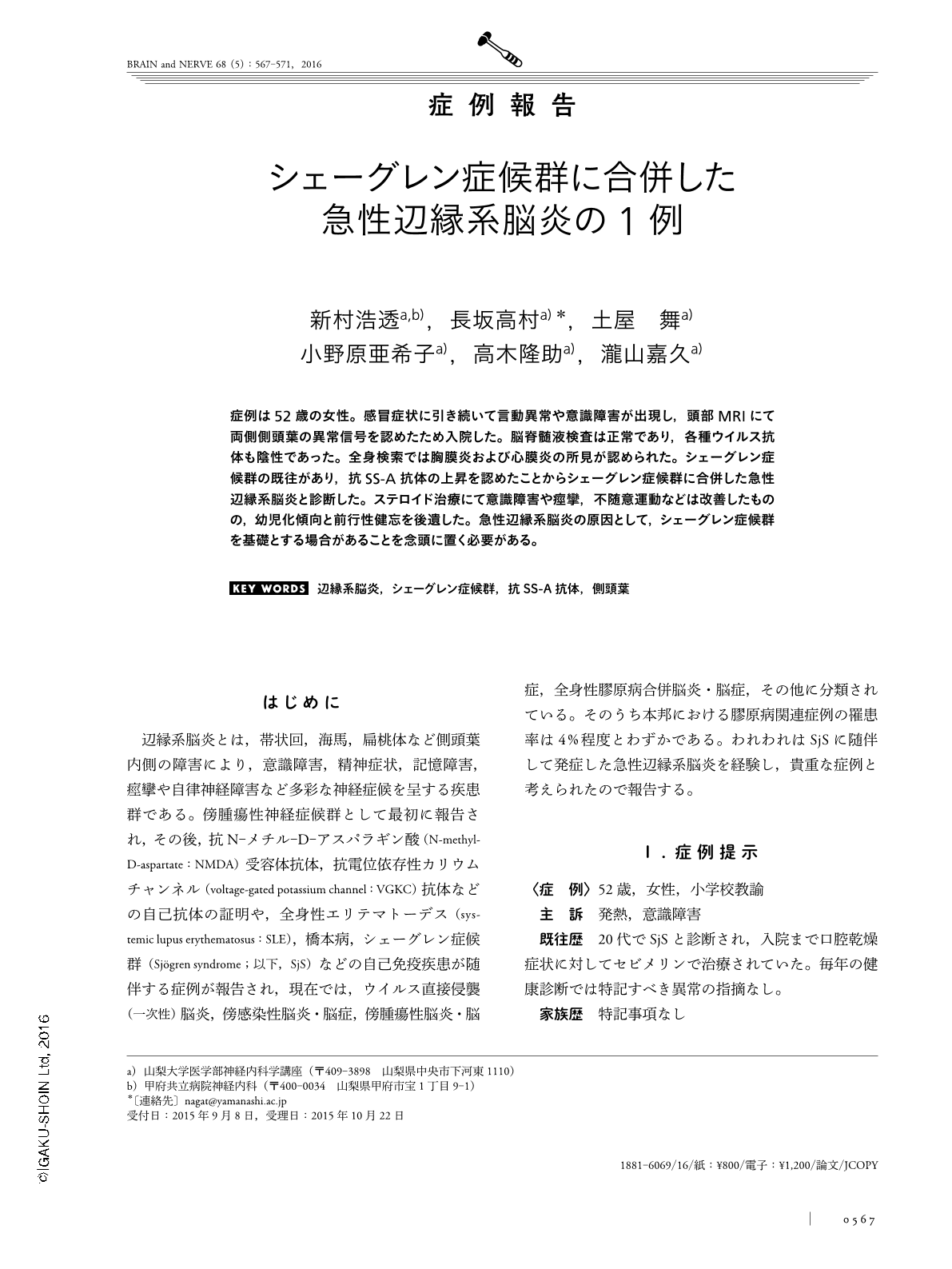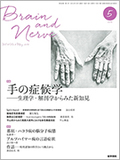Japanese
English
- 有料閲覧
- Abstract 文献概要
- 1ページ目 Look Inside
- 参考文献 Reference
症例は52歳の女性。感冒症状に引き続いて言動異常や意識障害が出現し,頭部MRIにて両側側頭葉の異常信号を認めたため入院した。脳脊髄液検査は正常であり,各種ウイルス抗体も陰性であった。全身検索では胸膜炎および心膜炎の所見が認められた。シェーグレン症候群の既往があり,抗SS-A抗体の上昇を認めたことからシェーグレン症候群に合併した急性辺縁系脳炎と診断した。ステロイド治療にて意識障害や痙攣,不随意運動などは改善したものの,幼児化傾向と前行性健忘を後遺した。急性辺縁系脳炎の原因として,シェーグレン症候群を基礎とする場合があることを念頭に置く必要がある。
Abstract
A 52-year-old woman developed abnormal behavior and disturbance of consciousness subsequent to several days with a cold. On admission, she was very confused, with incoherent speech, and an inability to recognize family faces. Diffusion weighted MRI showed high intensity signal change in the bilateral medial temporal lobes, including the hippocampus. Cerebrospinal fluid examination was normal. Tests including various viral antibody titers provided no evidence of infection. Several neuronal antibodies including anti-VGKC and -NMDA receptor antibody were absent. Evidence of malignancy was not apparent. She was diagnosed with acute limbic encephalitis complicated by Sjögren's syndrome (SjS), due to the fact that she had a past history of SjS, elevation of anti-SS-A antibody, pleuritis and pericarditis. Her symptoms gradually improved after administration of steroids including pulse therapy; however, her amnesia remained for a long time. In diagnosing acute limbic encephalitis, we should consider SjS as an underlying disease, even though it is rare.
(Received September 8, 2015; Accepted October 22, 2015; Published May 1, 2016)

Copyright © 2016, Igaku-Shoin Ltd. All rights reserved.


